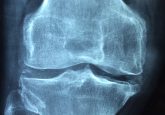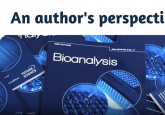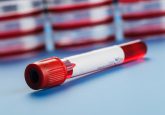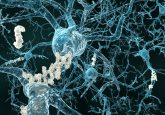NGM Biopharmaceuticals announce product–NGM282–achieves primary endpoint in non-alcoholic steatohepatitis Phase II Trial

It has been announced that in a Phase II trial of patients with non-alcoholic steatohepatitis (NASH), NGM Bio’s product NGM282 met the primary endpoint and key secondary endpoints. The results of this 12-week, randomized, double blind, placebo-controlled trial demonstrated NGM282 was associated with a significant reduction in liver fat content and improvement of biomarkers associated with the resolution of NASH. NGM282 is a non-tumorigenic, engineered variant of the human hormone FGF19.
“There is an urgent need to develop pharmacologic treatments that can help NASH patients restore their liver health. NGM282 is the first agent I’ve tested that holds the potential to completely reverse steatosis in as short as 12 weeks of therapy,” commented Stephen Harrison (University of Oxford, UK). “I look forward to participating in additional trials to further elucidate the robust activity of this agent in treating NASH patients.”
In total, 82 patients with biopsy-confirmed NASH were enrolled in the trial which examined the activity, safety and tolerability of 3 and 6 mg daily subcutaneous injections of NGM282 over 12 weeks of treatment compared to placebo. All patients had a minimum NAFLD activity score (NAS) ≥ 4 (with at least one point in each component), Stage 1–3 fibrosis and ≥8% absolute liver fat content as determined by magnetic resonance imaging-estimated proton density fat fraction (MRI-PDFF).
An absolute decrease in liver fat content by a minimum of 5% as measured by MRI-PDFF was taken as the primary endpoint of the study. Relative decreases in liver fat content along with biomarkers of liver function and lipid metabolism were among the secondary endpoints studied.
Clinically meaningful and statistically significant differences in both absolute and relative MRI-PDFF measures of liver fat content were observed in patients treated with NGM282. A reduction in absolute liver fat content of 9.7% and 11.9% was seen in the 3 mg and 6 mg dose groups, respectively (both p˂0.001 versus placebo).
A normal liver fat content was achieved in 34% of patients treated with NGM282. Patients with the highest baseline liver fat content (i.e., >20% by MRI-PDFF) and most active disease (i.e., alanine transaminase levels greater than 60 U/l) showed the greatest effect. Other serum biomarkers of liver function, lipid metabolism and fibrosis also demonstrated significant improvements.
Those treated with NGM282 showed a reduction of 39 and 44 mg/dl for the 3 and 6 mg doses, respectively, which is in line with FGFR1c activity. Increases of 52 and 38 mg/dl in LDL cholesterol were also seen with 3 and 6 mg doses of NGM282, respectively. Adverse events were mainly mild and dose-dependent, for example, lower gastrointestinal symptoms, nausea and injection site erythema. There has been consistency over more than 275 healthy volunteers with regards to NGM282’s safety and tolerability.
“NGM282 achieved an unprecedented reduction of liver fat as measured by MRI-PDFF in only 12 weeks, which supports its potential to rapidly resolve NASH,” concluded Alex DePaoli, Chief Medical Officer of NGM Bio, USA.






